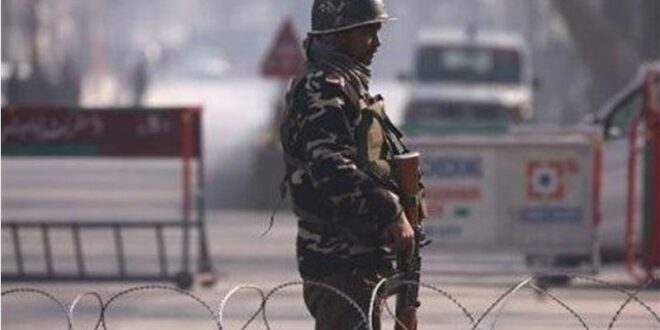Ever since the Taliban’s seized control of Kabul, there’s panic all over the world. The international community is apprehensive that Afghanistan may return to what it was when the Taliban first usurped power in 1996, as this will most certainly affect other countries as well.
Everyone seems to be surprised as to how a technologically and numerically inferior group of fighters defeat the US equipped and trained Afghanistan National. In fact, the lightning speed with which the Taliban swept across Afghanistan has created a full-blown humanitarian crisis, both for foreigners and locals. This is evident from the heart wrenching visuals of people at Kabul airport trying to flee the country and even at the risk of getting killed.
Being a war-ravaged nation, Afghanistan will require massive foreign aid inflow and even if this happens, it will still require years to recover. So, while the international community may extend emergency humanitarian aid to the impoverished people of Afghanistan, it will wait and watch the emerging situation before considering extensive aid for reconstruction and development. Therefore, the Taliban needs to formulate policies that generate more revenue on topmost priority and not depend solely on foreign aid. In addition, it must have a system of governance and laws that are in line with internationally accepted norms.
Even though India has often assumed the role of a stabilizing democratic force in the region, it may face the threat of isolation due to Taliban’s proximity to Pakistan, and thus needs to tread with caution. Since 2001, India has spent about $3bn on infrastructure development in Afghanistan through a number of projects like building roads, dams, power lines, clinics and schools across the country.
However, experts say that while New Delhi has done a lot for the people of Afghanistan by creating public facilities, since New Delhi has consistently maintained an anti-Taliban stance, the present dispensation in Kabul may not fully appreciate India’s helpful outreach. This is why New Delhi’s decision to reach out to the Taliban may serve as a game-changer and the recent endorsement of Indian development projects in Afghanistan by the Taliban indicates that Indo-Taliban relations could improve.
Observers are keeping an eye on the Afghanistan situation to see whether the corridors of power will be occupied by hardliners or moderates If hardliners come to power, they will secretly provide safe sanctuaries to terrorist organizations that seek to enforce Sharia Law. TTP is one such terrorist group that has openly declared its aim of implementing Sharia Law in Pakistan, which Islamabad will not allow. So, some analysts feel that Pakistan could try and push these groups into India (Jammu and Kashmir). However, since the locals will not support the Taliban as they don’t want Kashmir to turn into an Afghanistan, Taliban entering J&K in large numbers isn’t likely.
Other than a “morale boost” for a minuscule section of the youth in the Valley who have picked up the gun, Taliban’s control over Afghanistan is not expected to have any immediate bearing on ground in J&K as of now. Kashmir being the place where Sufism is inherent in its culture, will never accommodate Taliban ideology. Islam as practiced in India as a peaceful religion, which is its true form. Kashmiris are not driven by a regressive socio-religious code like Taliban, which believes in Pasthunwali code of conduct. Kashmiris believe in Kashmiriyat which is inclusive, unlike Pathan thinking in which Barradari comes first and religion second.
Policymakers in New Delhi are mulling over the implications for the territory of Kashmir and calibrating ways to ensure that Taliban resurgence in Afghanistan wouldn’t embolden militancy in the region. “In my assessment, there will be a consolidated front comprising China, Pakistan and the Taliban, Kashmir will not remain affected,” said Dr GM Hubbi, a veteran politician of Kashmir.
India’s army chief, Gen Manoj Mukund Naravane also said there was a “marked improvement” in the situation in Kashmir after the cease-fire agreement, particularly with regard to armed militancy. “There has been little or no infiltration from across the Line of Control, and the number of militancy-related incidents in the (Kashmir) Valley has also seen a considerable decline,” he said.
However, the Taliban have not given up on the idea of establishing the Caliphate from Afghanistan to the European border. Despite the cease-fire agreement at the LoC, Pakistan has not given up on its endeavour in Kashmir. Islamabad will certainly use its influence over the Taliban to ensure that New Delhi is unable to establish a cordial relationship with Kabul, and this is what the government should guard against.
A stable and neutral Afghanistan is necessary for peace in the region and so it becomes imperative for India to get nearer to Kabul to ensure that Pakistan doesn’t lure Taliban fighters into joining hands with PoK based terrorist groups and entering Kashmir like it did during the mid-nineties. So, security concerns dictate that no matter what political and ethical differences may exist between India and Afghanistan, New Delhi must keep itself engaged with the Taliban. It is time to look at this option closely.
 Eurasia Press & News
Eurasia Press & News



